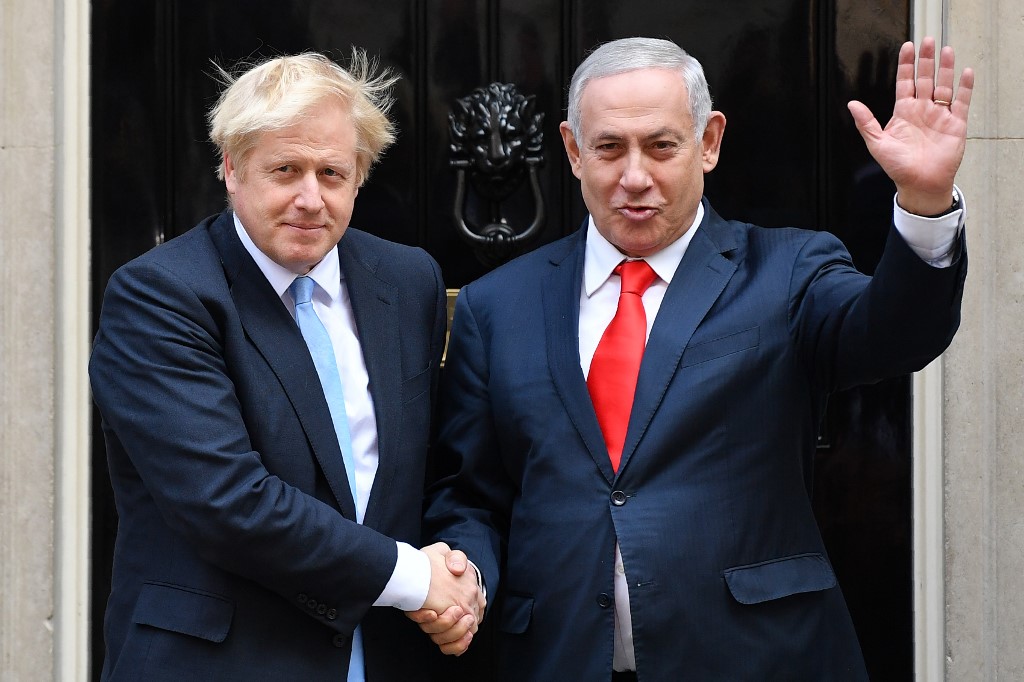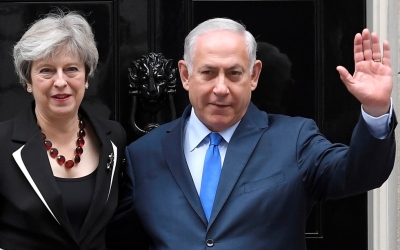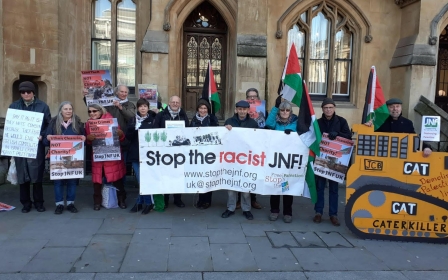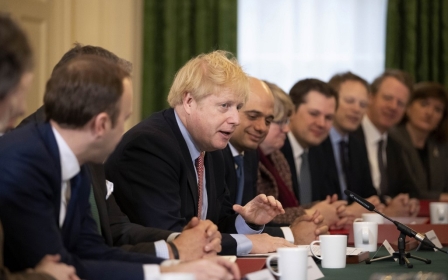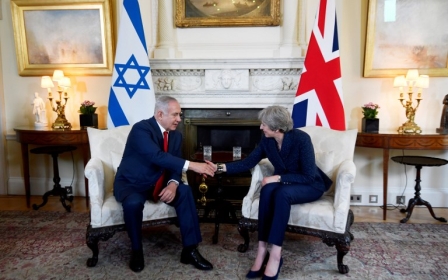Victory over UK government marks a key step for Palestine activists - but a long road lies ahead
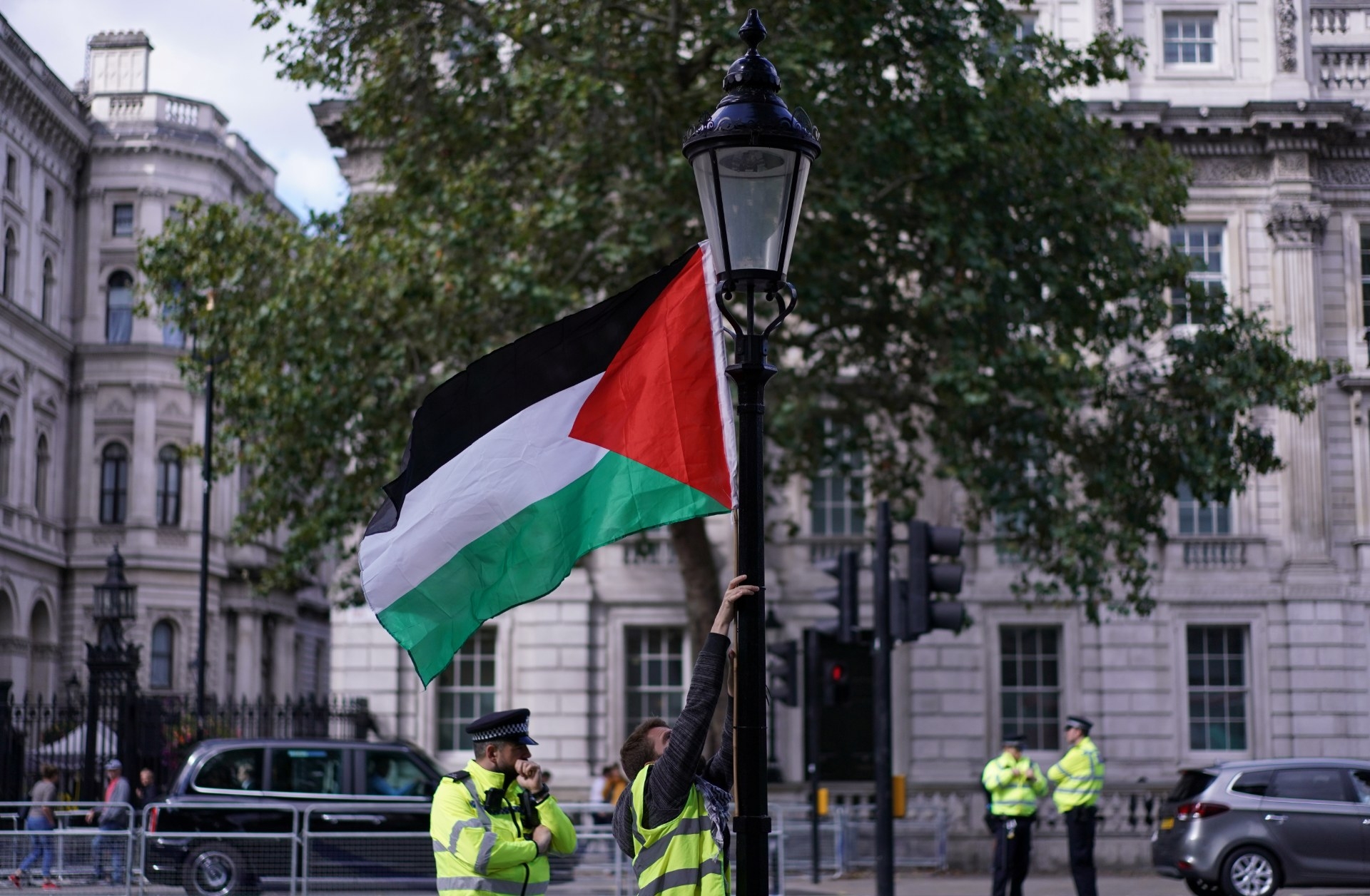
As we await the latest daily depressing updates on coronavirus casualty figures, we look for good news. But that has been in particularly short supply for Palestinians, who have seen the creation of an Israeli government that will continue its oppressive policies and illegal acts, including a commitment to annexing wide swathes of the West Bank.
It was therefore heartening to receive news that the Palestine Solidarity Campaign (PSC), which I am proud to chair, defeated the British government at the Supreme Court in its attempt to stop local pension schemes from divesting from companies complicit in Israel's occupation and the UK defence industry.
Blind support for Israel
How many times have Palestinians and their supporters been able to say that they defeated the British government?
The blind support of successive British governments, including Boris Johnson's, for Israel is well documented. Every British prime minister in recent years has at some point hailed Britain as a friend of Israel, but never as a friend of the Palestinian people.
New MEE newsletter: Jerusalem Dispatch
Sign up to get the latest insights and analysis on Israel-Palestine, alongside Turkey Unpacked and other MEE newsletters
In the British government's quest for commercial opportunities after Brexit, Israel was among the top countries with which it wanted to sign a trade deal at an early stage. Britain also recently ended its support for resolutions at the UN Human Rights Council condemning Israel's occupation and settlement enterprise, even placing the UNHRC "on notice".
Britain... sees Israel not as a breacher of international law and a country that has presided over the longest illegal occupation in history, but as an important ally and trade partner
Yes, Britain provides some aid to Palestinians and supports the UN Relief and Works Agency for Palestine Refugees in the Near East (UNRWA), but it has never taken any action to bring Israel to account for its many breaches of international law and its oppressive treatment of Palestinians.
Remember, this is the country that issued the Balfour Declaration and then left defenceless Palestinians alone to face the creation of Israel on their land in 1948.
Britain repeatedly condemns illegal settlements, but it has not taken any action to bring accountability to Israel. Almost in the same breath, Minister of State for the Middle East and North Africa James Cleverly recently warned Israel against annexing wide swathes of the West Bank, but then tweeted congratulations to the new government, which is blatantly committed to annexation.
Talking with a forked tongue
Every time Israel attacks Gaza, Britain sides with it, claiming it is entitled to self-defence. It even sells it arms, which it cannot guarantee Israel does not use against Palestinians.
It sees Israel not as a breacher of international law and a country that has presided over the longest illegal occupation in history, but as an important ally and trade partner. Johnson, when he was foreign secretary, boasted on a visit to Israel that the UK was the largest trading partner with Israel in the EU.
Britain has supported "labelling" settlement goods but not banning them. Government ministers have repeatedly stated that they oppose boycotts of Israel.
In a wider sense, the UK opposes the peaceful boycott, divestment and sanctions (BDS) movement, launched by Palestinians in 2005 to place pressure on the Israeli government to end its occupation, treat all citizens equally and respect the Palestinian right of return. All three demands are legal and moral.
In fact, these are demands that any self-respecting democracy that talks about values and supports human rights, including the UK, should demand from a state it considers an ally. Instead, we find it talking with a forked tongue, claiming to condemn Israel's illegal acts while seeking to reward it with impunity and trade.
Time for reflection
Amid this backdrop, it was particularly significant that the response for Britain's latest attempt to shield Israel from legitimate pressure is to be beaten and literally thrown out of court.
It is, of course, true that this was a narrow win on pension schemes. It was not about protecting the right of supporters of justice to place peaceful pressure on Israel through BDS more widely.
Still, ministers should take note of this ruling and reflect on the government's plan to compel public bodies to avoid boycotts. While the government will claim this applies to all countries, the driving force was clearly the protection of Israel.
The PSC's case was supported by submissions from the Quakers, the Campaign Against Arms Trade and War on Want, indicating that the government's action was seen as an attack on freedom of expression more widely, and not just on the issue of Palestine.
Legal challenges are risky and costly, and extremely careful thought was necessary before this step was taken.
I am confident that many more groups will see the government's proposed anti-boycott legislation as restricting their ability to campaign in effective ways to ensure public bodies are challenged. This should, in theory, make the government's plans to pass anti-BDS legislation more difficult, as surely most fair-minded MPs would consider this to be government overreach, mainly to protect Israel.
Palestine and beyond
Yet it was disturbing to see Shadow Communities Secretary Steve Reed telling a virtual meeting with some Jewish community representatives that he would encourage local Labour leaders not to support boycotts of Israel. This could place the new Labour leadership in support of the government's proposed anti-BDS legislation, as it aims to demonstrate how it is dealing robustly with antisemitism.
Supporters of human rights everywhere should oppose any attempt to restrict their ability to speak out
But this would be a dishonest reason for anyone to support the government's efforts, which are designed to shield Israel rather than to protect the UK's Jewish community from genuine antisemitism.
Indeed, it will be a dark day when Britain brings forward legislation to constrain boycotts as an expression of disdain for illegal acts.
Supporters of human rights everywhere should oppose any attempt to restrict their ability to speak out and to shine a light on regimes and policies that violate human rights and standards of decency - and not just for Palestine.
The views expressed in this article belong to the author and do not necessarily reflect the editorial policy of Middle East Eye.
Middle East Eye delivers independent and unrivalled coverage and analysis of the Middle East, North Africa and beyond. To learn more about republishing this content and the associated fees, please fill out this form. More about MEE can be found here.



